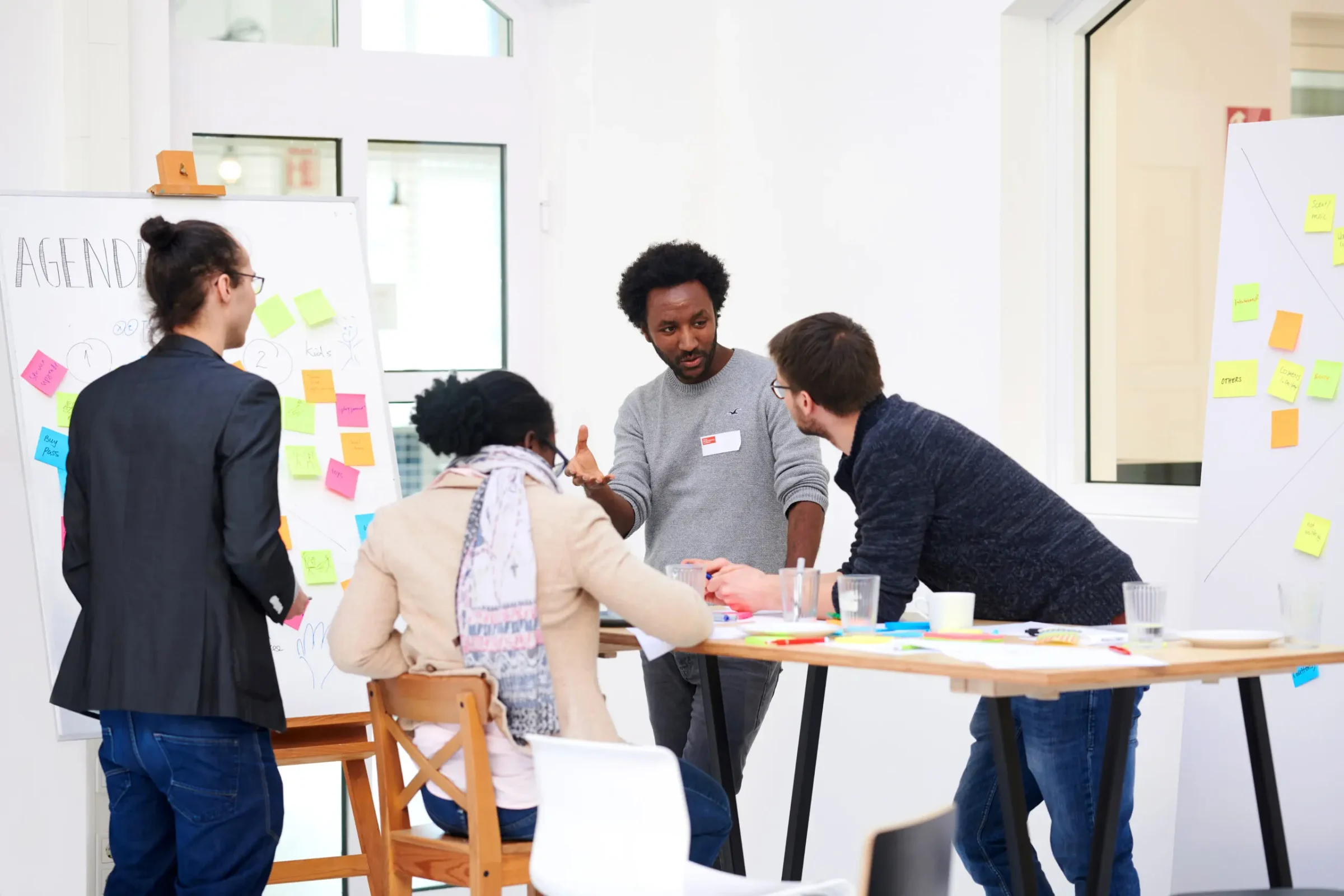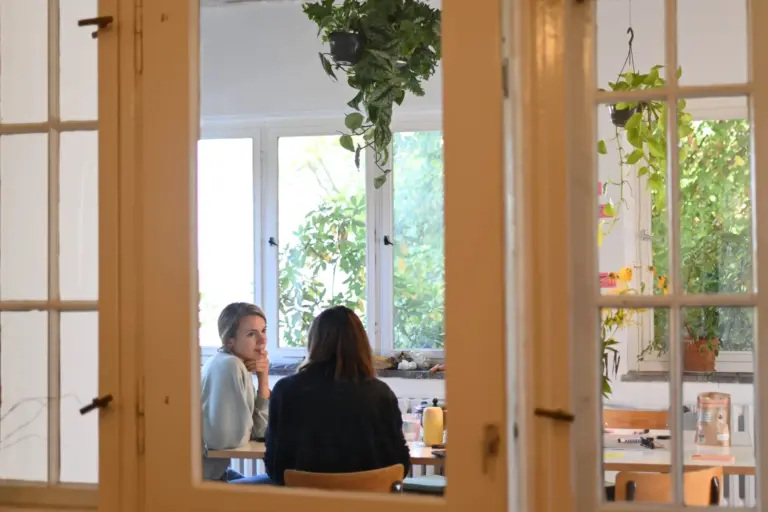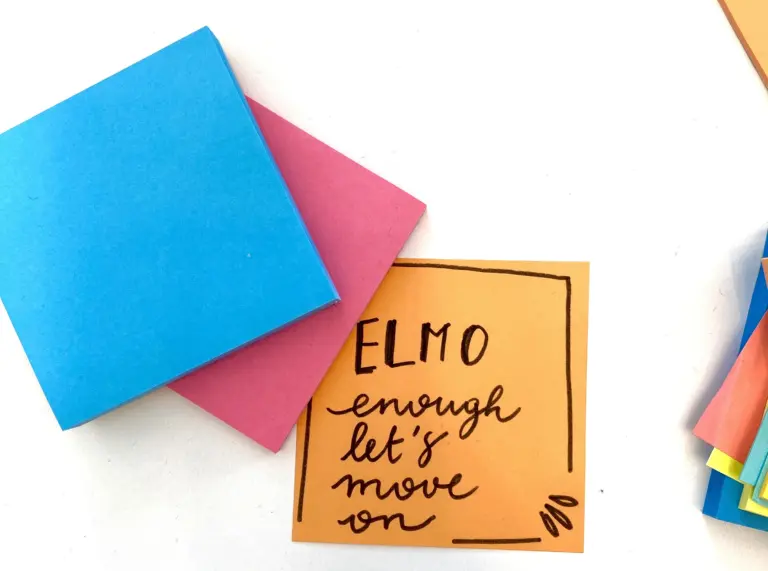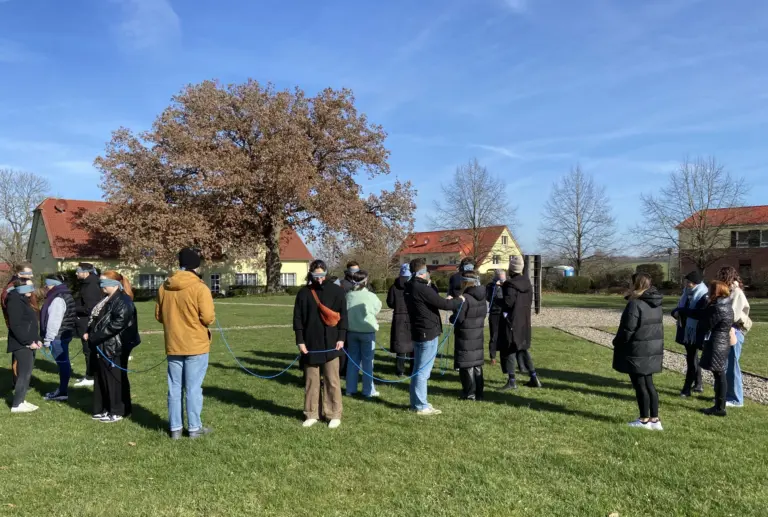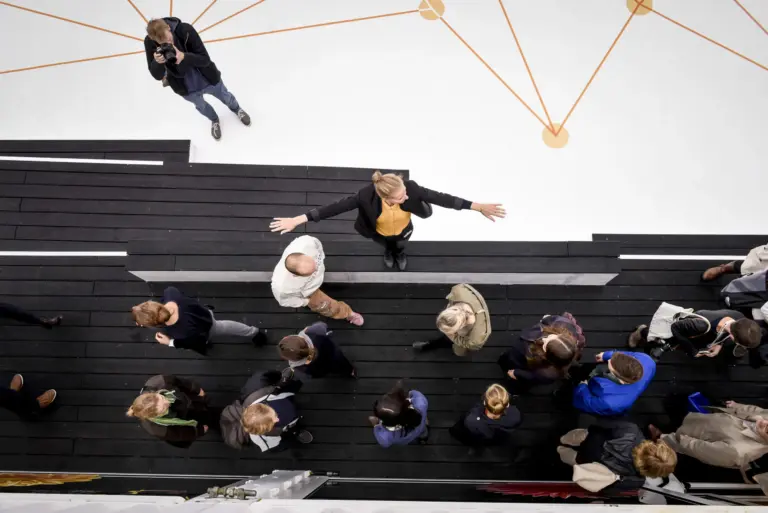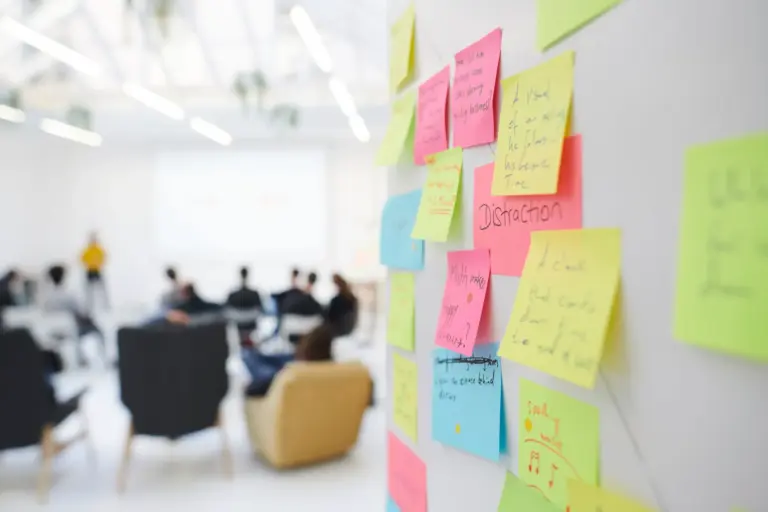Team coaching typically takes place in workshops and lasts one to three days.
We begin our team coaching sessions with check-ins to help participants settle in (mentally) and relax. This is followed—in line with the concept developed—by a mixture of (self-)reflection and exchange in small groups, input and impulses from the trainer, trying out and experiencing the new impulses, changing perspectives, resource orientation, and feedback rounds.
We end our team coaching sessions with concrete transfers, feedback, and check-outs.
Ideally, we offer a 1.5-hour digital follow-up after about 2 to 3 weeks to constructively reflect on and work through any potential hurdles and challenges in the implementation projects together.
When conducting workshops, we see ourselves as process facilitators who provide and maintain the space and framework. The participants are responsible for the content. We act as coaches, supporting the development and creation of content by asking systemic questions. If appropriate and desired, we offer ideas and input on specific topics as well as our own experiences.
